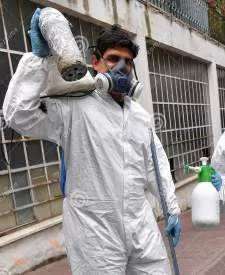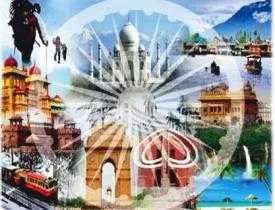Description
Course Name: Diploma in Sanitation
Course Id: DSHIQ1001.
Education Qualification: 12th Pass.
Duration: 370 Hrs.
How You will Get Diploma Certificate:
Step 1- Select your Course for Certification.
Step 2- Click on Enroll Now.
Step 3- Proceed to Enroll Now.
Step 4- Fill Your Billing Details and Proceed to Pay.
Step 5- You Will be Redirected to Payment Gateway, Pay Course and Exam Fee by Following Options.
Card(Debit/Credit), Wallet, Paytm, Net banking, UPI and Google pay.
Step 6- After Payment You will receive Study Material on your email id.
Step 7- After Completion of Course Study give Online Examination.
Step 8- After Online Examination you will get Diploma Certificate soft copy(Scan Copy) and Hard Copy(Original With Seal and Sign).
Step 9- After Certification you will receive Prospect Job Opportunities as per your Interest Area.
Online Examination Detail:
- Duration- 120 minutes.
- No. of Questions- 60. (Multiple Choice Questions).
- 10 Questions from each module, each carry 10 marks.
- Maximum Marks- 600, Passing Marks- 40%.
- There is no negative marking in this module.
| How Students will be Graded: | ||
| S.No. | Marks | Grade |
| 1 | 91-100 | O (Outstanding) |
| 2 | 81-90 | A (Excellent) |
| 3 | 71-80 | A (Very Good) |
| 4 | 61-70 | B (Good) |
| 5 | 51-60 | C (Average) |
| 6 | 41-50 | P (Pass) |
| 7 | 0-40 | F (Fail) |
Benefits of Certification:
- Government Authorized Assessment Agency Certification.
- Certificate Valid for Lifetime.
- Lifetime Verification of Certificate.
- Free Job Assistance as per your Interest Area.
Syllabus
Diploma in sanitation
Anatomy and Physiology
Musculo-skeletal system: structure and functions of bone, cartilage and connective tissues; Types of muscles, structure and functions. Sense Organs: Structure and function; Role of skin, eye, nose and tongue in perception of stimuli, Central Nervous System: Structure and function of brain and spinal cord; Hypothalamus and its role in various body functions; Structure and functions of neuron and role of neurotransmitters. Endocrine system: Structure, function and role of hormones and regulation of hormonal secretion. Digestive system: Structure and functions; Secretory, digestive and absorptive functions; Role of liver, pancreas and gall bladder in digestion process, Blood system: Formation and function of plasma proteins; Erythropoesis; Blood groups and Rh factor; Blood indices for diagnosis of specific diseases or disorders.
General Sanitation
Sanitation: Meaning, Concept, and Applications, Institutional Sanitation, Waste Management: Types and its Management, Role of anaerobic pre-treatment in sanitation strategies, Sanitation Systems: Ecological sanitation (introduction to ecosan, basics of conventional wastewater treatment, relevant treatment technologies, ecosan and agriculture, greywater treatment and reuse, linkages between ecosan and Millennium, Module objectives and contents (General introduction to water supply and sanitation situations in small town, peri-urban areas and urban slums etc.).
Minor sanitary engineering
Sources and protection of water supply, Requirement and distribution, Purification of water, Sedimentation of water (Lecture/Demonstration), Filtration of water, Horrock’s test., Sterilization of water by chlorine, Water purification in the field (Two tank method), Sterilization of water in containers, Museum- Water section, Water Tank/ Trucks and filters, Establishment of water point, Demo area- water point, Estimation of Chlorine in bleaching powder, Preparation of cadmium iodide and starch solution, Individual water sterilizing outfit, Sampling of water for chemical and bacteriological examination, Disposal of waste products, General principles and methods employed.
Preventive medicine and public health administration
Epidemiology, Classification of diseases – chain of infection, Definitions –patients ,missed cases ,carriers ,contacts , incubation period, isolation, quarantine ad surveillance, epidemics ,endemics, pandemics, Excremental diseases and general control measures, Cholera –prevention and control, Dysentery and diarrhea–prevention and control, Infectious hepatitis–prevention and control, Poliomyelitis –prevention and control, Intestinal worm diseases( Helmenthiasis ) –prevention and control, Air borne diseases and general control measures, Cancer –prevention and control, Cardiovascular diseases, Scabies –prevention and control, STD –prevention and control, Warning signals of poor mental health and causes of mental health, Mental health services , alcoholism and drug dependency, Measures for the general health protection of workers ,prevention of occupational diseases, Occupational health and diseases.
Hygiene and Sanitation
Importance of health and hygiene in life, the importance of nutrition for a healthy life, different health care programmes of India, basic concept of health impact assessment as a means of assessing the policies, plans and projects using quantitative and qualitative techniques, importance of community and personal health & hygiene measures, Importance of food, social tenets, mental condition, physical activity on health, provide knowledge on different health indicators and types of hygiene methods, To aware the student on the importance of food, social strategies, mental status and physical activities on health.
Anthropometric measurements and its importance
Points for consideration before measuring weight, height and other parameters, Check the equipment before taking it to the patient: process of checking each equipment, reporting error to the concerned official, Process of taking permission from the patient, Recording measurements, Any other measure – dos and don’ts, Weight: Process of measuring weight, Importance of weight measurement – weight for age and weight for height, Do’s and don’ts while measuring weight, Height – steps for measuring height using- height measuring scale and inch tape, Circumference measurements – process of measuring circumference – arm and waist, Format for reporting the measurements.







